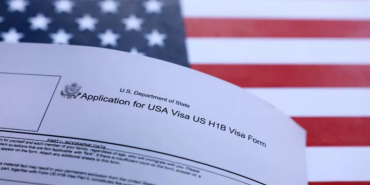Trump Vows to Declare National Emergency, Use Military for Mass Deportations

President-elect Donald Trump has confirmed plans for a comprehensive deportation strategy targeting undocumented migrants.
In a social media post, Trump endorses a commentary suggesting using military resources and a potential national emergency declaration to facilitate large-scale deportations. Throughout his campaign, Trump consistently pledged to mobilize the National Guard in collaboration with Immigration and Customs Enforcement (ICE) to execute deportations. The proposed initiative represents an ambitious effort to conduct what would be the largest mass deportation in United States history, scheduled to commence immediately upon his inauguration on January 20, 2025.
However, substantial logistical challenges accompany this proposed strategy. Immigration experts have raised significant concerns about the operational feasibility, noting that ICE's current workforce of approximately 20,000 agents and support personnel would be inadequate to locate and deport millions of undocumented individuals. The financial implications of such an extensive operation are expected to be considerable, though Trump has remained resolute in his commitment. To support this initiative, Trump has strategically appointed key allies to critical immigration and enforcement leadership positions.
South Dakota Governor Kristi Noem's nomination to lead the Department of Homeland Security and former ICE chief Tom Homan's designation as "border tsar" underline the administration's intent to prioritize aggressive immigration enforcement. The proposed strategy includes invoking a national emergency to authorize military deployment on domestic soil. Homan has indicated ongoing discussions about potentially leveraging Department of Defense resources to augment deportation capabilities, emphasizing the need for comprehensive interagency cooperation.
Legal challenges are already emerging, with the American Civil Liberties Union (ACLU) initiating legal action to obtain detailed information about the deportation plan and preparing potential blocking strategies. This sets the stage for what could be protracted legal battles over the proposed policy. Historical context provides some perspective on deportation trends. During Trump's previous administration, approximately 1.5 million individuals were deported from both border and interior regions. The Biden administration has maintained a comparable pace, with roughly 1.1 million deportations recorded by February 2024.
The strategy proposed by the President-elect aims to address current limitations in ICE detention capacity, potentially accelerating deportation processes by creating camps that would pressure immigrants to accept removal. Pentagon spokeswoman Sabrina Singh has remained cautious, describing the plan as "hypothetical" and subject to rigorous review. Immigrant advocacy groups have strongly condemned the initiative. Karen Tumuli of the Justice Action Center characterizes the plan as "dystopian," warning of potential illegal implications and devastating human consequences.
Congressional Democrats, including Senator Richard Blumenthal, have challenged the legality of using military resources domestically, citing potential violations of the Insurrection Act. Conversely, some Republican lawmakers, such as Senator James Lankford, have been more measured, suggesting potential precedents for military logistical support in immigration matters. Hard-right supporters, including Senator Tommy Tuberville, have enthusiastically endorsed Trump's proposal. The plan remains contentious, with significant legal and humanitarian challenges anticipated.














Comments
I really don't, though I may…
Permalink
I really don't, though I may claim to know, just a little bit of American culture of showing intent of doing anything, then ending up doing it. Americans love movies. That is a fact. But movies are always not for real, they mostly narrate incidences that happened long ago, which re written into books, and later acted as movies. But Americans, by voting Trump overwhelmingly, send one clear signal: we want to see things happening in real life, chaotic as it may sound.
I have for years attempted to talk to our fellow Kenyans to put a nest egg back home, in vain. Some have, others declined, with excuses ranging from Kenya's cons and crafty individuals to am investing here, die here, buried here. But I usually understand them. Some have lived in America for so long that returning home would make them miserable.
Trump, after working so hard to regain the presidency, believed his that Americans voted him in because they acknowledged his "Make America great again" sounded well among voters. And that he was persecuted and not prosecuted.
As I watch a mad man create national and global havoc, fear, hatred, chaos and stocks-tanking, like the Hitler of the yester-centuries, America and the world will never be the same in the next four years.
bs!!!!!!!!
Permalink
In reply to I really don't, though I may… by MjuAji (not verified)
bs!!!!!!!!
Add new comment